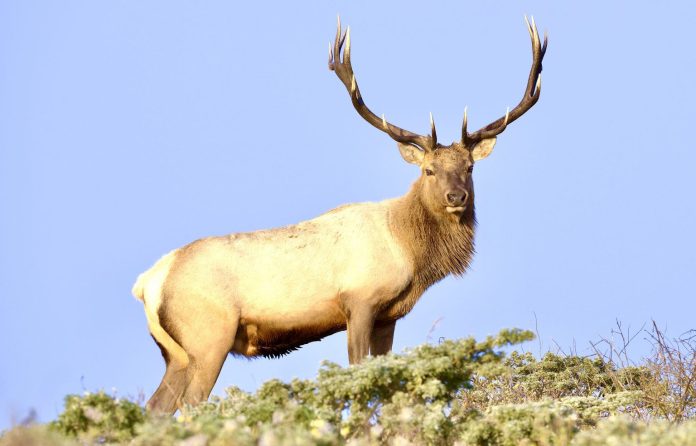
Shocking Court Decision Allows Tule Elk To Continue To Die From Dehydration And Starvation; This Must End!
By Lauren Lewis
You can help all animals and our planet by choosing compassion on your plate and in your glass. #GoVeg
RELATED ARTICLES
Banning Cruelty: New Legislation Aims To Ban Octopus Farming In The U.S.
New bipartisan legislation has just been introduced in the U.S. to ban commercial octopus farming and prohibit imports of farmed octopus from foreign countries.
The...
Outrage In Yellowstone! Grizzly Bear Killed By Wildlife Officials & Left With Head & Paws Cut Off
Photo by: Trisha McFarland / Cowboy State Daily
A photo of a dead grizzly bear with its head and paws cut off has caused an...
Inside Florida’s Illegal Horse Meat Trade: Undercover Footage Shows Racehorse Being Shot & Butchered
A heart-wrenching discovery of illegal horse slaughter has emerged, with video footage exposing the tragic killing of a racehorse named 'Funny Biz,' who was...
Popular stories
Breaking News
Bull Jumps Into Audience At Oregon Rodeo Injuring Three, Sparking Calls For A Ban On The Barbaric “Sport”
Last weekend, several people were injured when a bull jumped a fence into the audience at the Sisters Rodeo in Oregon. Three people were...
International News
FOUR PAWS Rescues Two Asiatic Black Bear Cubs From The Illegal Wildlife Trade In Vietnam After Smuggler Tried To Sell Them Online
Photos from FOUR PAWS
Global animal welfare organization FOUR PAWS has just rescued two Asiatic black bear cubs that were confiscated by the environmental police...
Breaking News
New Lawsuit Aims To Protect Wolves In Northern Rocky Mountains After USFWS Denied Them Protection
Four conservation and animal protection groups sued the U.S. Fish and Wildlife Service this week for denying their petition to protect gray wolves in...


